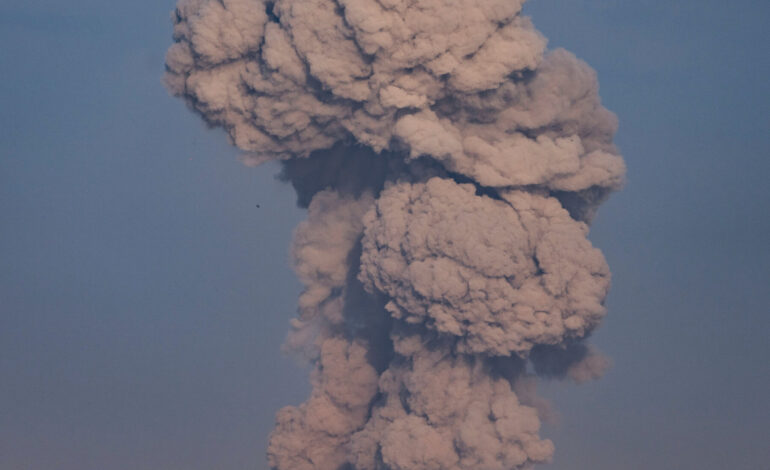Israel’s Shift in Negotiation Strategy May Extend Gaza Conflict

Israel’s recent adjustment in negotiating tactics signals a likely extension of the ongoing conflict in Gaza. The government is now advocating for a permanent cease-fire deal while simultaneously planning a new military offensive in Gaza City. This dual approach indicates that a resolution to the fighting is not imminent.
This shift comes as the conflict, which has already claimed thousands of lives and displaced many residents, enters a critical phase. According to reports from the United Nations, civilian casualties continue to rise, with over 10,000 deaths recorded since the outbreak of hostilities in October 2023. The humanitarian situation in Gaza has deteriorated sharply, leading to calls for an immediate cease-fire from various international organizations, including the International Red Cross.
The Israeli government, led by Prime Minister Benjamin Netanyahu, has framed its military actions as necessary for national security. Netanyahu stated, “We will continue to fight Hamas until our objectives are achieved.” This rhetoric aligns with the government’s current strategy, which aims to dismantle Hamas’ military capabilities while negotiating terms for a long-term peace.
Many analysts suggest that the push for a permanent cease-fire is, in part, a response to international pressure. Hamas continues to launch rockets into Israeli territory, prompting swift retaliatory strikes. The complexity of the situation is compounded by internal divisions within the Palestinian leadership, notably between Hamas and the Palestinian Authority, which has led to further instability.
International Reactions and Humanitarian Concerns
The international community has reacted with concern to Israel’s new stance. The United Nations has called for immediate negotiations to address the humanitarian crisis, urging both sides to prioritize civilian safety. UN Resolution 2334 explicitly calls for halting violence and emphasizes the need for a two-state solution, yet recent developments suggest that a resolution remains elusive.
Egyptian mediators have been engaged in discussions, attempting to facilitate dialogue between the conflicting parties. However, the ongoing military operations complicate these efforts. Experts believe that without a genuine commitment to cease-fire negotiations, the conflict will likely escalate further.
The humanitarian crisis in Gaza is dire. Access to basic necessities such as food, water, and medical supplies has become increasingly limited. The United Nations reports that about 2.3 million people in Gaza are in urgent need of assistance. Aid organizations are struggling to deliver relief due to continued hostilities, exacerbating the suffering of civilians caught in the crossfire.
As the situation unfolds, the potential for a protracted conflict looms. The dual strategy of pursuing a cease-fire while preparing for new offensives raises questions about the sincerity of negotiations. Observers note that this approach may lead to further loss of life and deepen the humanitarian crisis in Gaza.
In conclusion, Israel’s new negotiating stance, characterized by a call for a permanent cease-fire coupled with military escalation, indicates that the conflict in Gaza is far from resolution. Both local and international actors must navigate a complex landscape to achieve lasting peace and security for all parties involved.






